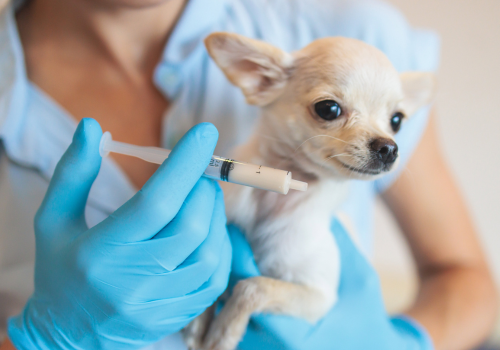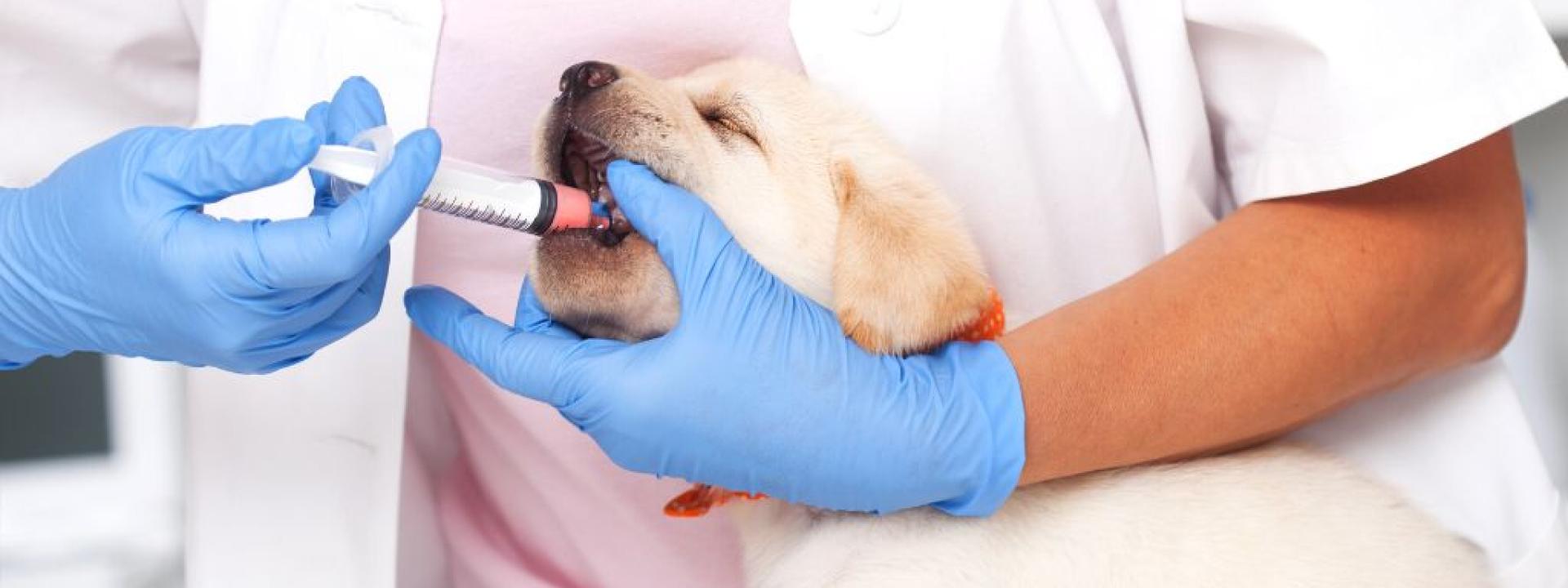Dog deworming is an essential process, especially at the puppy stage, to ensure your dog isn’t suffering from a parasite load, leading to gastrointestinal distress and severe discomfort. Taking care of intestinal parasites in dogs is especially vital since these parasites are zoonotic, meaning they can be transmitted to your children or anyone else living in the home. If your dog is experiencing vomiting or diarrhea, or you’ve noticed rice-like material in their feces, you might have been drawn to “Dr. Google” to see what this combination of symptoms could mean. At Veterinary Medical Center, we work hard to present reliable information you can trust. To avoid online misinformation that could cause you to delay treatment for something as serious as intestinal parasites, we’ve taken FAQs about dog deworming and answered them as thoroughly as possible.
If you’re looking for a highly trained veterinarian in Union City, CA, we’d love to see your dog for deworming, so please call us at (510) 441-8500.
Why is it important to deworm my dog?
Many puppies come to Veterinary Medical Center for their first visit with parasites already in their system, so all puppies should have a vigorous deworming protocol. Not only are these detrimental to your puppy due to the serious gastrointestinal complications they cause, but, again, they are also zoonotic — meaning they can be transmitted to your children or other family members.
What are some parasites found in dogs, and how are they treated?
The most common parasites found in dogs are:
- Roundworms
- Hookworms
- Whipworms
- Tapeworms
- Giardia
- Coccidia
The American Kennel Club details the various types of dog parasites, including how they’re acquired and the symptoms of each. We generally treat roundworms, hookworms, and whipworms with one particular kind of medication and use something different for tapeworms and coccidia. We must first identify the parasites with a fecal test and then treat them accordingly.
How do intestinal parasites impact the health and wellbeing of my dog?
Intestinal parasites are a constant drain on your dog's system and steal vital nutrients from them. They’ll experience uncomfortable symptoms such as vomiting and diarrhea, and in severe cases, anemia, passing worms, and intestinal upset. Some dogs may get an intestinal blockage from extreme parasite loads.
What are some signs and symptoms of intestinal parasites in my dog?
Many types of parasites have learned how to remain undetected in your dog's system without them exhibiting signs and symptoms, which is what makes them a parasite. However, if the load is bad, we'll see signs that let us know parasites are likely to blame.

Signs and symptoms of parasites in dogs include:
- Diarrhea or loose stool
- Gastrointestinal upset
- Vomiting
- Worms visible in the stool
- Potbellied appearance
- Weakness
Would I be able to see worms in my dog's stool?
You can see tapeworms in your dog's stool immediately after the stool is passed, and they'll actually inch their way off. You may see roundworms in the stool, but that's usually only when your dog has a high load of parasites. They often pass microscopic eggs, which is why we do fecal checks on dogs.
How will a veterinarian diagnose intestinal parasites in my dog?
With puppies, a veterinarian generally checks their stool a couple of times, and that's because they can pass parasites but not pass the egg. They’ll take a fecal sample the size of a walnut and send it off to a lab or possibly do it in-house. They’ll perform a fecal float, which involves putting the fecal sample into a specific solution that allows the parasite eggs to float to the top. Then, they’ll put them on a slide and look under a microscope, and that’s what will determine the type of parasite for proper treatment.
Why is early detection and diagnosis of intestinal parasites in dogs so important?
Parasites feed off your dog's body, so it's not healthy for them from a nutritional perspective. In addition to the nutrition loss, parasites also make your dog extremely uncomfortable. Due to vomiting and diarrhea, they can become dehydrated or anemic. Early detection ensures a quick resolution to the parasites and avoids discomfort for your dog. In addition, parasites can be transmitted to humans, so early detention also helps to keep the rest of the household healthy.
What is the difference between natural remedies and over-the-counter dewormers compared to prescription medications?
The primary difference between natural remedies, over-the-counter dewormers, and prescription medications is that natural remedies don’t work, and over-the-counter medications can cause severe diarrhea and cramping. What you receive from your veterinarian is the appropriate dose, a very safe medication, and something that's completely effective.
Dewormers in supermarkets and pet stores may be effective to a certain degree, but unfortunately, they make veterinarians worry about resistance. Sometimes parasites—whether fleas, ticks, or intestinal parasites—can build resistance to certain chemicals and medications. In contrast, the medications prescribed by your veterinarian aren't nearly as overused, so parasites are still susceptible to it.

How do I choose the right dewormer for my dog?
You can rest assured you’re getting the right dewormer for your dog by letting your veterinarian choose. If it’s a puppy, your veterinarian will do a general deworming, but there are some parasites they won’t deworm for unless they’re found in the stool. Therefore, in addition to the basic deworming, they’ll also take a fecal sample for testing and treatment based on the results.
The right dewormer also depends on your dog’s life stage. Puppies, for example, will receive a type of liquid formulation that helps clear them out at each puppy vaccine appointment. However, an adult dog that hasn't been on heartworm prevention might need something like Drontal — a one-time tablet that clears out the current infection—after that, preventing future infestations with a monthly preventative becomes even more critical.
The American Animal Hospital Association offers more details on parasite control. If you live in or near Union City, CA, we’d love to see your dog to test for parasites and ensure they’re healthy, so please don’t hesitate to call us at (510) 441-8500 or email us at [email protected].

